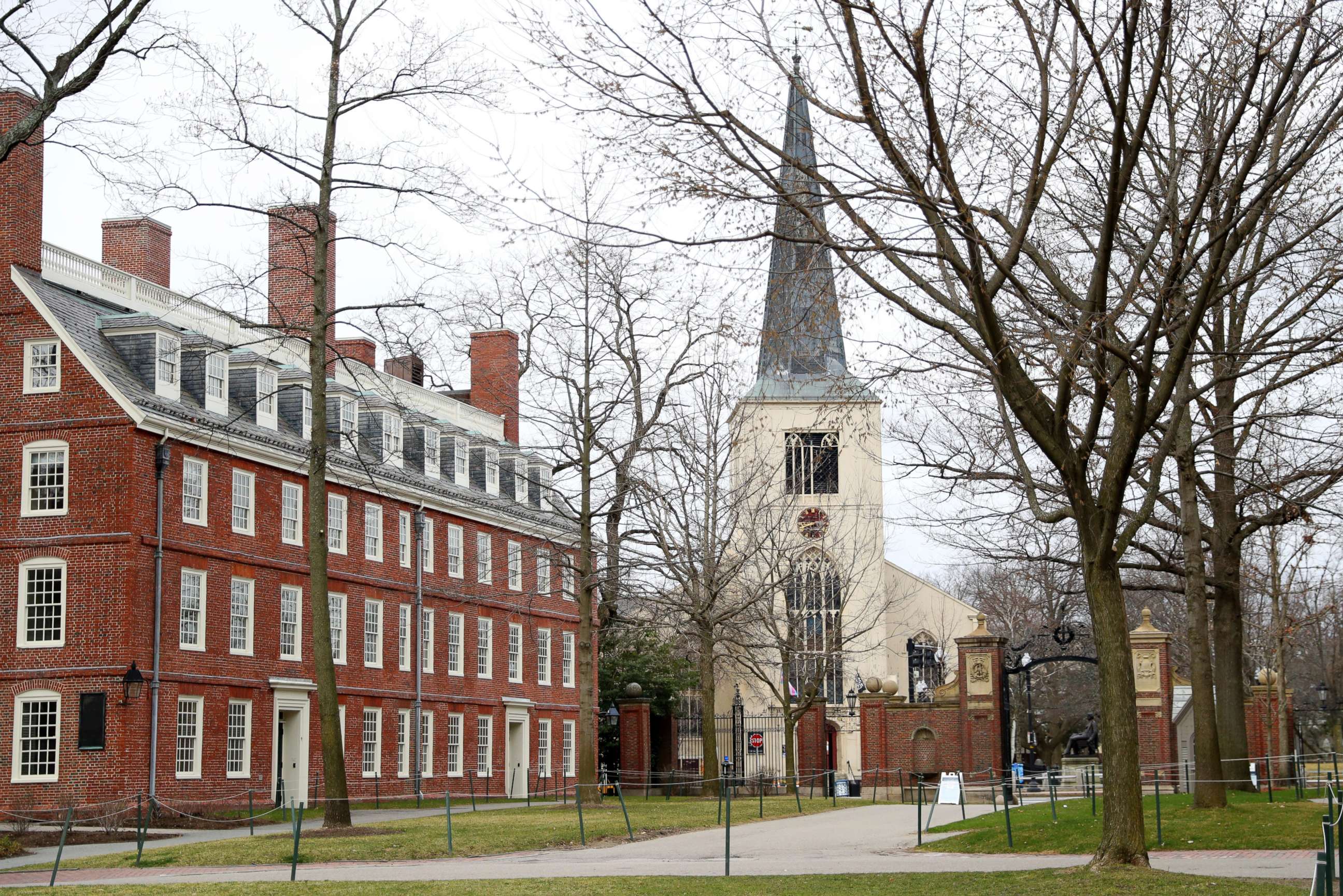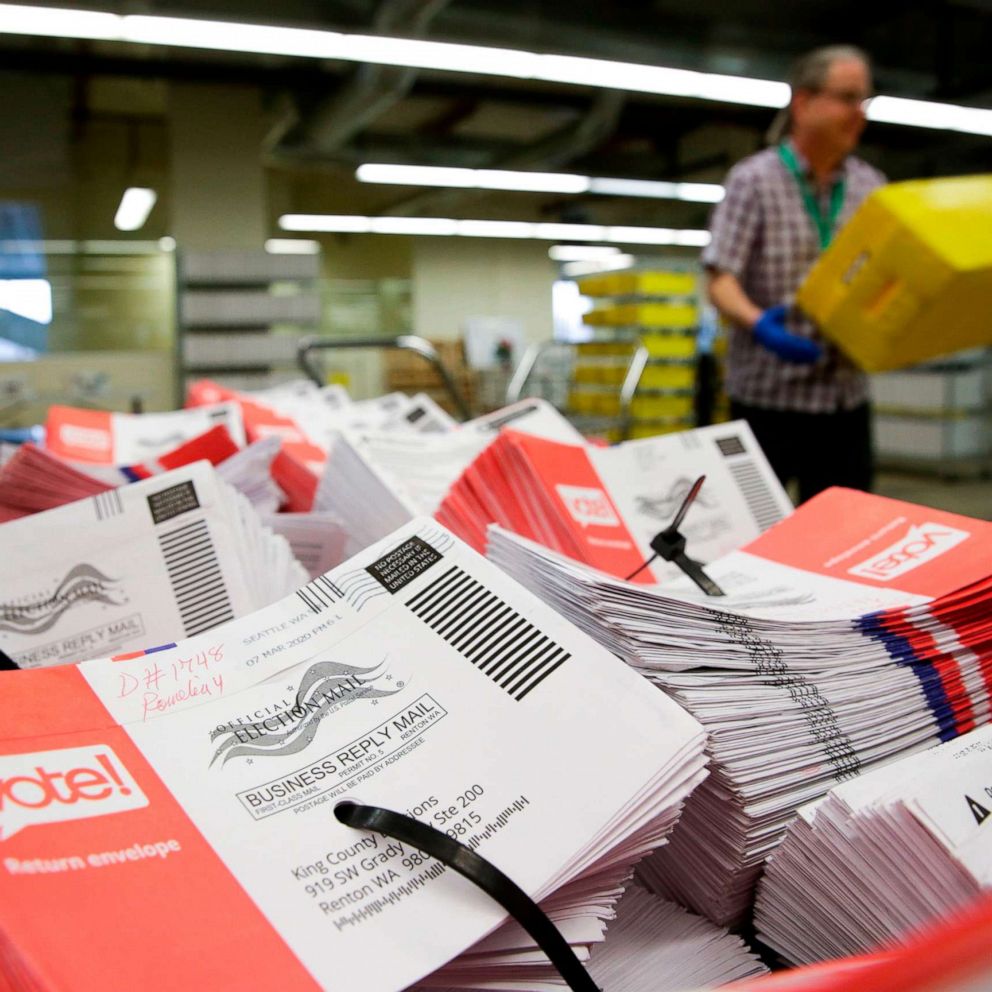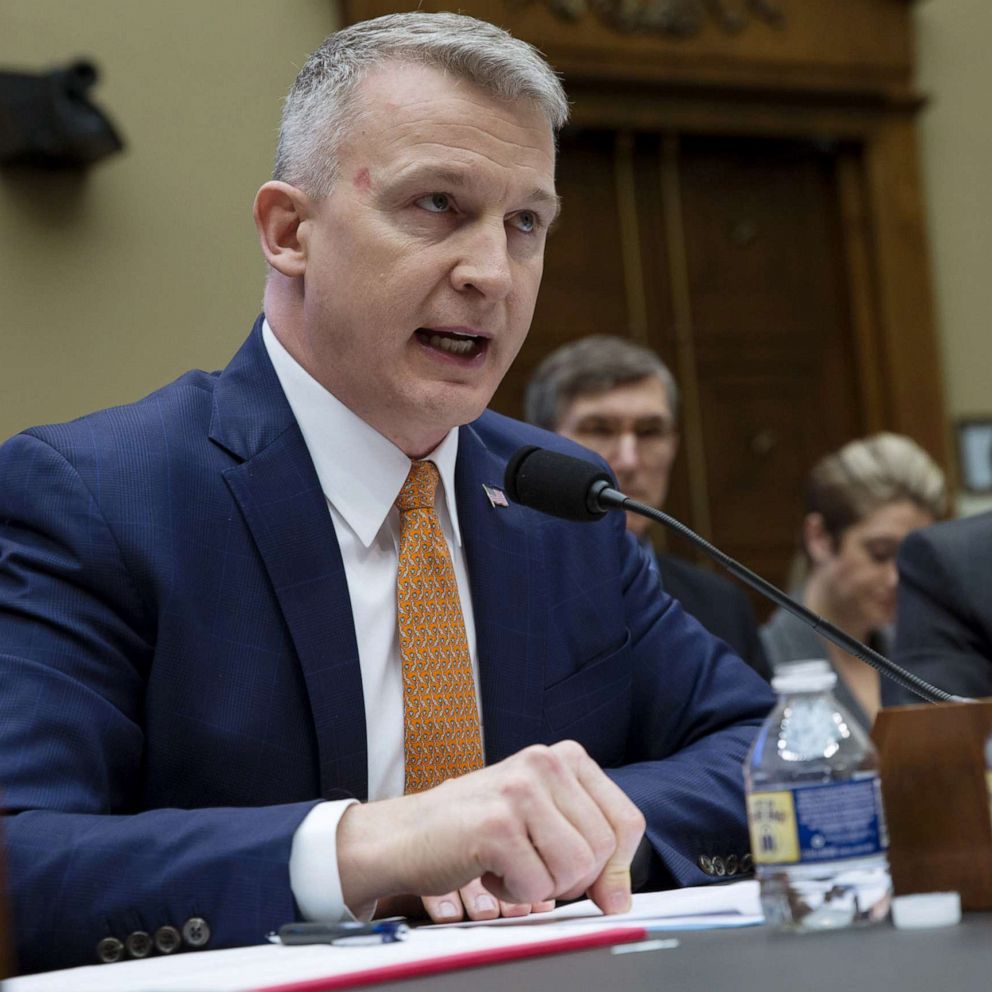Harvard reverses course, says it won't accept $9 million stimulus funds
President Donald Trump said he was "pleased" with Harvard's decision.
After immense pressure from lawmakers, the president and others, Harvard University announced Wednesday it will not be accepting any bailout funds as part of the $2 trillion CARES Act.
Harvard initially made headlines for receiving nearly $9 million in stimulus funds, and President Donald Trump said at a news briefing Tuesday night that he would ask the private university to "pay back the money."
"Harvard is going to pay back the money, and they shouldn't be taking it," Trump said. "They have one of the largest endowments anywhere in the country, maybe in the world I guess, and they are going to pay back that money."
He reacted Wednesday to the news Harvard was giving back the money, saying he was "pleased" with the decision.
"I've called for Harvard -- that's Harvard University -- which has a $40 billion endowment fund, to return the money that it was allocated under the CARES Act," Trump said at Wednesday's task force briefing. "And I'm pleased to announce that Harvard has announced today that they will not accept the funds, nor will Stanford University or many of the others that were involved both on a university level."
Stanford, which has the fourth-largest endowment of any university at $22 billion, had been allotted $7.4 million from the CARES Act.
Trump had echoed sentiments on Tuesday of fellow lawmakers who expressed outrage on Twitter, including Sen. Ted Cruz, R-Texas, and Sen. Rick Scott, R-Fla.
"You're very rich, many people are hurting. Now give the money back," Cruz wrote.
Scott called on the Trump administration "to reconsider rescinding funding for wasteful spending in the CARES Act," noting that Harvard "received $9 million in taxpayer money."
Harvard wasn't the only elite institution slated to receive millions.
The Department of Education announced it had allocated $12.8 million each to fellow Ivy League schools Columbia University and Cornell University. The University of Pennsylvania was earmarked to receive $9.9 million. Yale University was earmarked for $6.8 million, Brown for $4.8 million, Dartmouth for $3.4 million and Princeton for $2.4 million.
The DOE said that funds were divvied up and allocated based on a formula that weighed the number of full-time students who are Pell Grant-eligible, as well as the total population of the school and the number of students who were not enrolled full-time online prior to the coronavirus outbreak, using data from the Integrated Postsecondary Education Data System and federal student aid information.
Harvard initially responded to Trump's comments and the criticism in a statement Tuesday night, clarifying that it was not receiving any funds designated for small businesses and that it has committed the funds it did receive to "provide direct assistance to students."
"Harvard did not apply for, nor has it received any funds through the U.S. Small Business Administration's Paycheck Protection Program (PPP) for small businesses. Reports saying otherwise are inaccurate. President Trump is right that it would not have been appropriate for our institution to receive funds that were designated for struggling small businesses," the university said in a Facebook post.
"Like most colleges and universities, Harvard has been allocated funds as part of the CARES Act Higher Education Emergency Relief Fund," it added. "Harvard has committed that 100% of these emergency higher education funds will be used to provide direct assistance to students facing urgent financial needs due to the COVID-19 pandemic."
On Wednesday, the university said it had "decided not to seek or accept the funds allocated to it" in the Higher Education Emergency Relief Fund as part of the CARES Act.
"We will inform the Department of Education of our decision and encourage the department to act swiftly to reallocate resources previously allocated to Harvard," the university said in a statement. "While we understand any reallocation of these resources is a matter for the Department of Education, we hope that special consideration will be given to Massachusetts institutions that are struggling to serve their communities and meet the needs of their students through these difficult and challenging times."
Other Ivy League schools -- many with multi-billion dollar endowments -- similarly said they weren't accepting the stimulus funds on Wednesday.
Princeton said Wednesday on Twitter "it will not accept funding allocated under the CARES Act."
"Princeton has not yet received any of these funds, and never requested any of these funds," the university wrote. "We have also taken steps to meet additional needs resulting from #COVID19, and will continue to look for opportunities to do so throughout this crisis."
Brown said it was still debating whether to accept the money, with Cass Cliatt, vice president for communications, telling ABC News: "Our understanding is that Congress voted to allocate CARES Act funding because legislators wanted to support the highest need students in the country. We’re assessing whether, by accepting the money, we would fulfill the intent of the legislation. If we were to accept the funds, we would be committed to ensuring that 100% of the dollars would provide the intended support for students related to the disruption of campus operations due to novel coronavirus."
Cornell University said it planned to keep the money and would go above the government's requirements in accepting the funding.
"Cornell will use 100 percent of these CARES Act funds to support students, going beyond the federal requirement that half of the funds be put towards emergency financial assistance to our students," according to Joel Malina, vice president for University Relations. "We know that many of our students will have increased need as a result of the pandemic. Even as our Ithaca campus faces an anticipated COVID-related budget shortfall of over $100 million for the coming fiscal year, we aim to guarantee that every single one, currently enrolled or newly admitted, has the financial resources to complete their Cornell education."
It was not immediately clear whether the other Ivy League schools would still accept or receive the funds. ABC News has reached out for comment.

Why aren't these institutions using their endowments?
Many critics were quick to question why the elite universities couldn't use their endowments, especially as Harvard's is reportedly more than $40 billion.
On its website explaining its endowment, the university said that access to the funds is very limited.
"There is a common misconception that endowments, including Harvard's, can be accessed like bank accounts, used for anything at any time as long as funds are available," the website states. "In reality, Harvard's flexibility in spending from the endowment is limited by the fact that it must be maintained in perpetuity and that it is largely restricted."
Moreover, it added that many endowment gifts are "intended by their donors to benefit both current and future generations of students and scholars."
"As a result, Harvard is obligated to preserve the purchasing power of these gifts by spending only a small fraction of their value each year," the website added. "Spending significantly more than that over time, for whatever reason, would privilege the present over the future in a manner inconsistent with an endowment's fundamental purpose of maintaining intergenerational equity."
It added that "roughly 80 percent of endowed funds" are subject to restrictions designated by the donor.
ABC News' Sophie Tatum contributed to this report.







